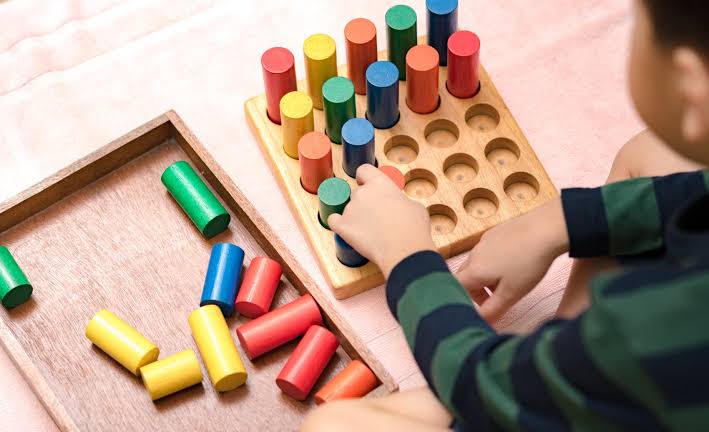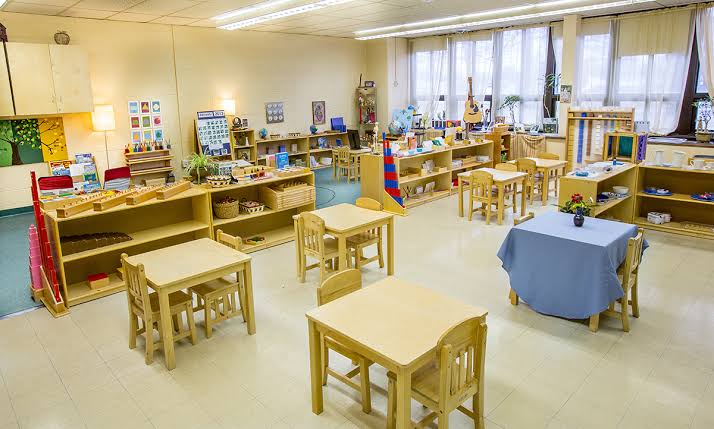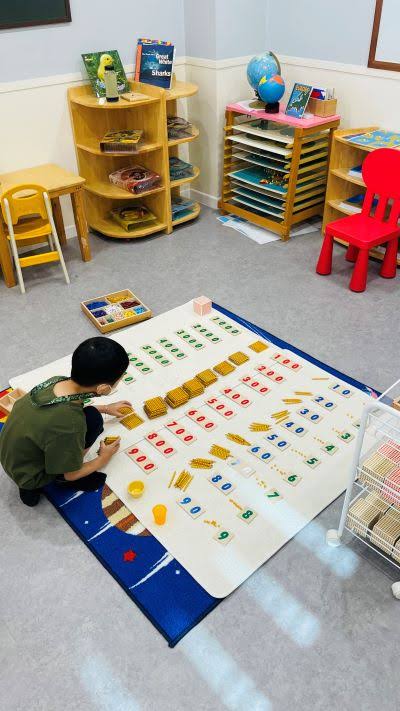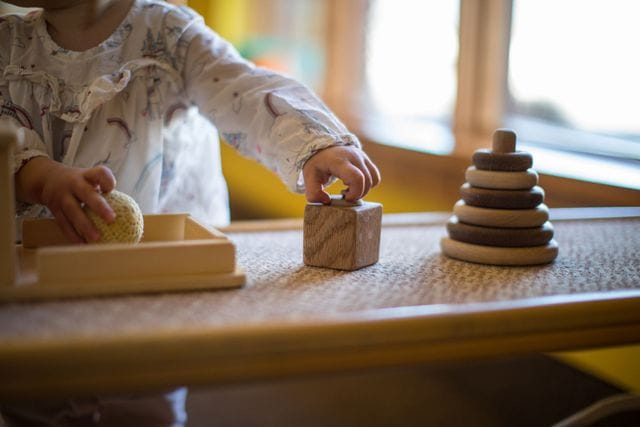Montessori Education Principles
Discover how the Montessori approach nurtures independence, exploration, and lifelong learning in children.
Montessori Principles

1: Activity and Independence: Students work individually or in small, self-selected groups. Focus is on child's learning not on teacher's teaching. Independence means to allow the child to do things by himself from the beginning of life within the limits.
2: Prepared Environment: Montessori environment is the house of children. It should not be confused with ordinary classroom. It is the place where they live like we do in our homes. The environment is designed to meet the needs, interests, abilities and development of the children.
3: Everything is Child-Sized: Everything including chair, table, working materials are of child size. Materials are arranged on low shelves to make sure that child can reach them and work whenever he wants.
4: Focus on Individual Progress and Development: In a Montessori setting, each child works on his own pace and moves to next step when he is ready to move. Individualized plans are used for each child.
5: A Family Setting: The focus is to prepare the child to identify his role in helping the care for the environment and to live the standards of the community like in a family, to live with others, work with others and helping other whenever they need.
6: No Competition: Within this system of education, children are encouraged to cooperate and collaborate rather than competition. They are taught to treat one another with love, respect and kindness.
7: Role of the Adult: We call teacher as directress in this system. She plays the role of a facilitator in the environment. She demonstrates how to use a material. Also encourage the child to learn advanced skills like reading and writing.
8: Mixed Age Group: This term means that children of different ages are working together in a Montessori setting as it develops the sense of responsibility in them and also foster the children to help each other, as elders are encouraged to help younger in any regard. The child also practices code of conduct in this manner.
9: Concrete to Abstract: In Montessori, concepts are taught to children by presenting them concrete models or contacting them with real things to grasp the concepts deeply.
10: Individual Activities: Every child is encouraged to select and work with the activity of his choice individually. It fosters sense of achievement.
The Montessori Directress
The Montessori Directress plays a unique and crucial role:
- Observer and guide, not a traditional instructor
- Introduces materials individually
- Fosters independence, not dependence
- Ensures a peaceful, engaging environment



Montessori vs Traditional Education
| Montessori | Traditional |
|---|---|
| Individualized learning pace | Same pace for entire class |
| Mixed-age classrooms | Same-age classrooms |
| Hands-on materials | Textbook-based instruction |
| Self-directed learning | Teacher-directed instruction |
| Freedom within limits | Structured schedule |
